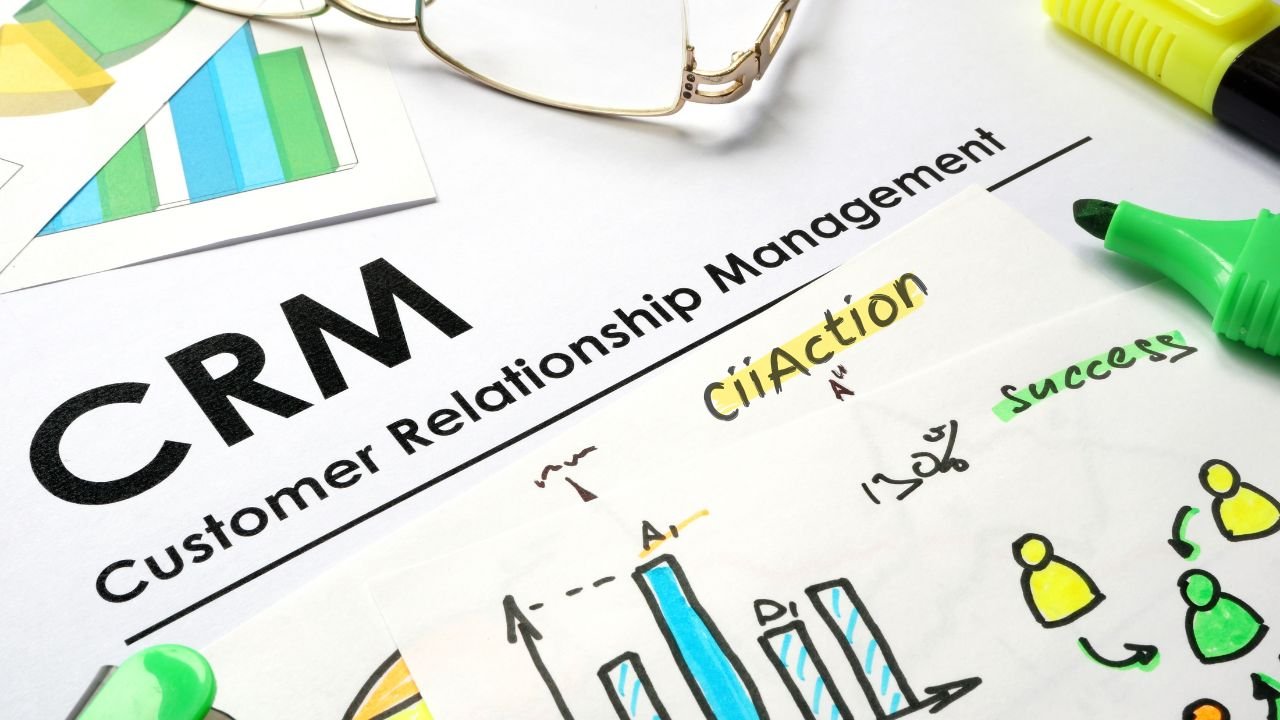- +1 647-809-9789
- info@ciiaction.com
CiiAction
Comprehensive Salesforce CRM Maintenance Guide
A Comprehensive Guide to Planning Your Salesforce CRM Maintenance and Support.
Strategize Salesforce CRM Support Best Practices
Establishing a Proactive Salesforce CRM Maintenance Plan for Continuous Improvement.
Key Focus of the Article
Discover how to implement a proactive Salesforce CRM maintenance plan and improve customer relationships through optimized CRM support services. This article addresses essential strategies and best practices for ensuring your CRM system functions seamlessly and continues to drive business success.
Salesforce CRM Maintenance Guide

Digital Marketing Outsourcing
Introduction
Salesforce CRM has risen to become a premier cloud-based software for managing customer relationships and driving business growth. Business leaders and IT directors who have embraced Salesforce CRM understand the pivotal role it plays in optimizing their operations and achieving greater business value. However, to truly reap the benefits of Salesforce, the implementation of effective maintenance practices is imperative.
The significance of maintaining your CRM system cannot be overstated. It serves several critical functions. First and foremost, it guarantees that your Salesforce CRM consistently operates at peak performance, minimizing downtime, and elevating user experiences. Secondly, it acts as a safeguard for your valuable data, thwarting potential security breaches. Furthermore, regular maintenance equips you to embrace the latest Salesforce features and updates, ensuring your business stays competitive in today’s ever-evolving landscape.
In this guide, we will take a deep dive into the intricacies of crafting and executing an efficient maintenance strategy for your Salesforce CRM. Because maintaining and supporting this system effectively necessitates a well-thought-out plan, our goal is to provide insights into the art of formulating a strategic blueprint for Salesforce CRM maintenance and support, ultimately ensuring that it delivers its best performance.
Evaluate Your Salesforce CRM System
Before delving into maintenance and support planning, take a closer look at your existing Salesforce CRM system:
- Review Usage: Understand how your teams utilize Salesforce and identify areas where it excels or falls short.
- Identify Pain Points: Recognize recurring issues or bottlenecks that impede your team’s productivity.
- CRM Objectives: Align your Salesforce CRM goals with your broader business objectives.
- Assess In-House Team: Evaluate your in-house Salesforce team’s knowledge and capacity. Ensure they have the skills and resources to manage and support the system effectively.
Unlock the full potential of your Salesforce CRM with our comprehensive maintenance and support guide. Optimize, proactively address issues, and continuously improve your CRM for business success. #CRM #Salesforce #BusinessSuccess
Create a Salesforce CRM Maintenance Plan
An effective maintenance plan is essential to ensure the reliability, security, and functionality of your Salesforce CRM. Your plan should encompass the following aspects:
- Regular Updates: Keep Salesforce and its associated apps and integrations up-to-date to benefit from the latest features and security patches.
- Data Maintenance: Establish a data quality program to maintain clean, accurate, and up-to-date records.
- Backup and Recovery: Implement a robust data backup and recovery strategy to safeguard your CRM data.
- Security Measures: Continuously enhance Salesforce security to protect sensitive customer data.
- Salesforce CRM Integration Maintenance: Ensure to include support and maintenance services for your integration, guaranteeing that your Salesforce CRM operates seamlessly within your technology ecosystem.
- User Training: Provide ongoing training to ensure your team is proficient with Salesforce and aware of updates.
- Proactive Maintenance: Schedule regular proactive maintenance sessions to address any potential issues and optimize system performance. Weekly check-ins are advisable to ensure your system operates smoothly.
Enhance your business's Salesforce CRM performance with our comprehensive maintenance guide. Discover best practices, proactive strategies, and expert insights for optimizing your CRM system.
Best Practices for Salesforce CRM Support

The objective is to ensure that your Salesforce CRM operates seamlessly and consistently meets your business needs while enhancing user adoption. A robust support system is then indispensable for efficiently addressing Salesforce-related issues and fostering Salesforce adoption. Consider the following components to establish the best practices for Salesforce CRM support:
- Help Desk Portal and Process: Create a dedicated help desk or support portal for users to conveniently report issues and seek assistance. Consider implementing a ticketing system, like Jira, that can be seamlessly integrated with Salesforce, ensuring organized issue tracking.
- Dedicated Support Team: It’s recommended to appoint a dedicated support team responsible for managing user queries and promptly resolving problems. The utilization of a ticketing system ensures efficient issue prioritization and resolution, minimizing the risk of oversight. If preferred, you may also choose to outsource support and maintenance to a specialized Salesforce company, making sure to clearly define SLAs (Service Level Agreements) and contractual terms.
- Salesforce Consultant: Whenever necessary, cultivate a robust partnership with a proficient Salesforce consulting company or expert. Their guidance is invaluable for swift issue resolution, customization projects, and providing expert insights to optimize your Salesforce environment.
Outsourcing Salesforce Support and Maintenance
Depending on your plan and team’s capacity, you may opt to outsource specific support and maintenance tasks or delegate all responsibilities to a specialized Salesforce consulting company. These experts bring valuable knowledge and can effectively oversee your Salesforce environment, particularly during complex customization projects. When considering outsourcing, it’s important to define your criteria for selecting the right outsourcing company and establish clear SLA that specify expectations, responsibilities, and agreed-upon terms. This ensures that you receive the level of support and maintenance that aligns with your business needs.
Proactive Issue Tracking and Continuous CRM Improvement
Leverage Salesforce’s built-in monitoring tools to continuously monitor and analyze system performance, user activity, and data usage. Proactively track issues and collect user feedback to pinpoint areas for improvement within your Salesforce CRM. Enhancements may encompass the implementation of automations, refining dashboard visuals, and customizing processes to align with your business objectives. As part of your routine maintenance:
- Disaster Recovery and Data Protection: Establish a comprehensive disaster recovery plan to protect your Salesforce data and maintain system availability during unexpected events. This plan should encompass data backups, redundancy solutions, and off-site data storage.
- Regular Audits for Data Integrity: Regularly conduct audits of your Salesforce CRM to assess data quality, review user permissions, and evaluate system configurations. Audits are integral for upholding data integrity and ensuring system security.
Documentation: Support System Policies and Procedures
Maintain detailed documentation of Salesforce CRM processes, configurations, and maintenance procedures. This documentation will be invaluable for troubleshooting, onboarding new team members, and ensuring consistency.
If you decide to outsource Salesforce support or maintain an in-house support team, having clear and well-defined SLA is essential. These SLAs outline specific response and resolution times for Salesforce-related issues, setting clear expectations for both your support team or outsourcing company and your users. They ensure that issues are addressed and resolved promptly. In the SLA, you will specify particular aspects of the service, including quality, availability, and responsibilities to be agreed upon between you and the service provider. This clarity is vital for efficient support and maintenance operations.
Conclusion
Maintaining and supporting your Salesforce CRM is fundamental to your business’s success. Establishing a robust maintenance plan, fostering a responsive support system, and continuously evaluating your CRM’s performance provide the foundation for business growth, fortified customer relationships, and exceptional experiences.
A data-driven approach that monitors and addresses issues while seeking user feedback and assessing performance fuels ongoing improvements, allowing your CRM to adapt seamlessly to evolving business needs and consistently deliver exceptional customer experiences.
Incorporate these best practices, leverage tools like Jira, and invest in ongoing tracking and enhancements to unlock Salesforce’s full capabilities. Whether optimizing workflows, elevating dashboards, or implementing automation, Salesforce can be tailored for business growth. Connect with our CiiAction experts to unlock valuable insights and solutions for your success.

Maximizing Your Salesforce Potential
We offer top-notch Salesforce Support and Maintenance Services designed to elevate your CRM experience. Our team of experts ensures that your Salesforce platform is running at its peak performance, keeping you ahead in today's competitive business landscape. From resolving issues promptly to harnessing data-driven improvements, we've got you covered. Unlock your Salesforce potential with our services. Contact us now and embark on a journey of CRM success.
Share the knowledge >>
Our News
December 9, 2024
July 23, 2024
November 30, 2023
September 12, 2023
September 3, 2023
